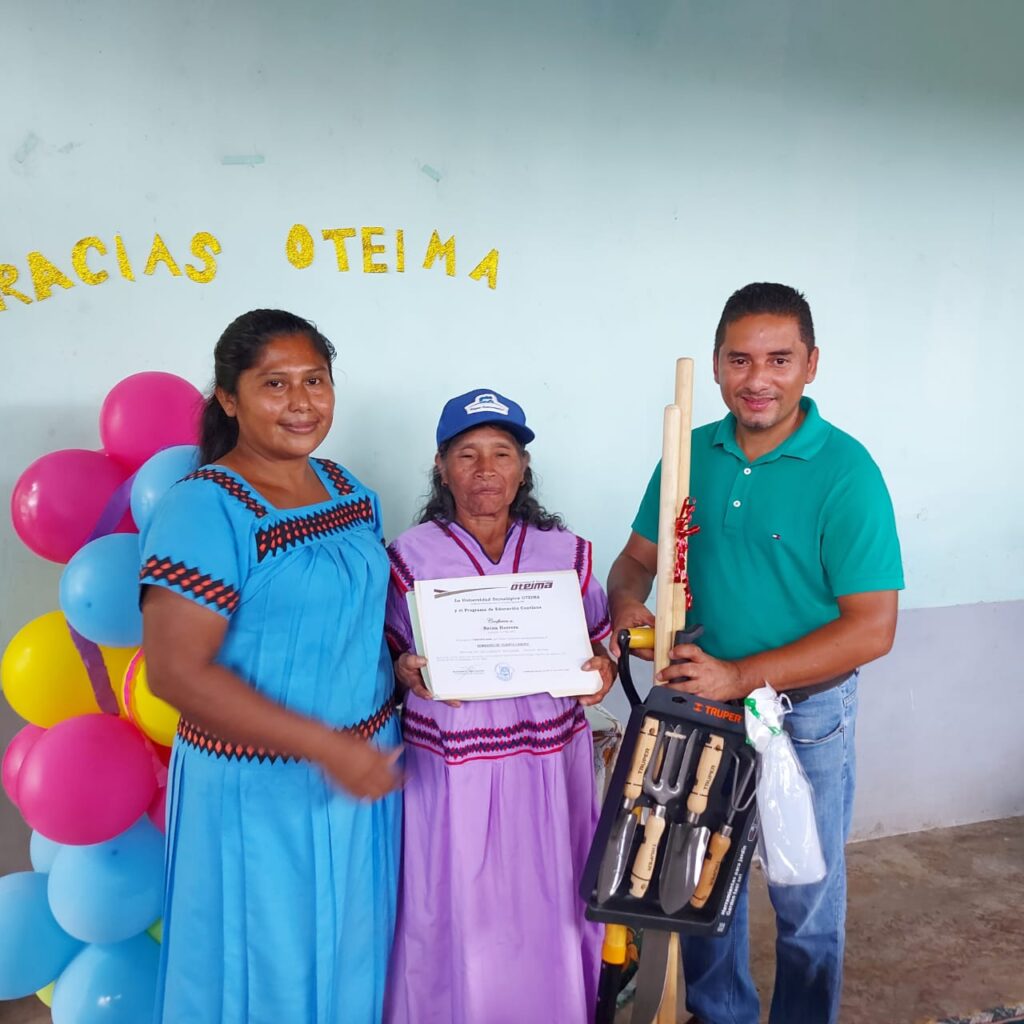By Sister Edia Lopez
What kind of world do we want to leave to those who come after us, to children who are now growing up? … It is no longer enough, then, simply to state that we should be concerned for future generations. We need to see that what is at stake is our own dignity. Leaving an inhabitable planet to future generations is, first and foremost, up to us. – Pope Francis, Laudato Si, May 2015

After two powerful hurricanes, ETA and IOTA, struck Central America in 2020, Sisters of Mercy in Panama moved to support the disaster victims and help with their immediate needs. Aid arrived quickly to the affected areas, and in just two years the region has recovered from the devastation.
However, after experiencing the disaster and the flooding caused by the storms, we wondered what hope there was for Mother Earth. After relief efforts came to a close, we realized that emergency aid in the immediate aftermath of a crisis was not enough. We needed to do more to make a difference for future generations who will live in this part of the world and face the challenge of climate change.

This is how the Land, Life and Hope project was born, as a dream to restore Mother Earth and the communities in two large areas in the northern part of Panama: Tierras Altas in the Chiriquí province and the Ngabe-Bukle Comarca indigenous region. The project, a Mercy Fund for Ministry grant recipient, seeks to inspire community interest in caring for Mother Earth with eco-friendly farming practices, and to engage young people in the commitment to taking care of Creation.
Activities at three educational centers with about 3,000 students focus on soil conservation and stewardship using school gardens, enhancing the ancestral practices of the indigenous people and encouraging a circular economy, while reinforcing eco-friendly agricultural techniques in the broader communities.

School gardens serve as inspiration for the children and youth in the communities where we work. The students grow many kinds of vegetables and herbs, native crops such as yucca, otoe (a taro root), plantain, banana, coconut, fruit and ornamental trees – including trees used in the area’s agroforestry system — as well as flowers to promote pollination. They learn about the benefits of growing their own vegetables at home and exchanging seeds, and how to make their own compost or organic fertilizer to grow healthy edible plants. This also improves their nutrition and promotes improved health.
Partnerships with governmental and private institutions such as Oteima University have helped us to train the families to develop their own gardens with innovative production techniques.
We also promote community engagement among young university students in the agricultural sciences department at the National University of Panama, to act as an organized civil society group pushing for the protection of the environment, and to generate and share information about factors that affect the ecosystem.
“Praised be You my Lord through our Sister, Mother Earth who sustains and governs us, producing varied fruits with colored flowers and herbs.” – St Francis of Assisi, Canticle of Brother Sun and Sister Moon